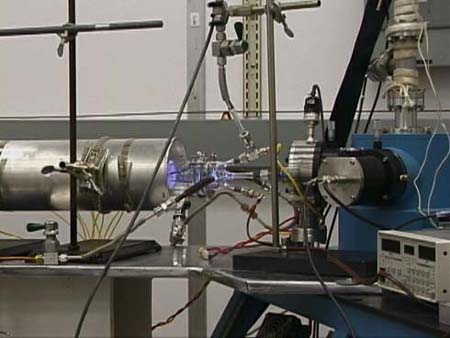Two leading Taiwanese fuel cell companies said Tuesday that fuel cell manufacture is a future "star" green industry in which Taiwan should move now in order to take the lead
They added that the government will have to play a significant role in providing more incentives and subsidies for the budding industry to develop.
Chung-hsin Electric and Machinery Manufacturing (CHEM) , a mechanical-electrical enterprise, and M-Field Energy Ltd., a manufacturer of back-up power systems, made the remarks ahead of the first Taiwan International Green Industry Show scheduled to open Oct.
21 with the aim of sharing Taiwan’s innovations with the global market.
Company representatives told CNA that Taiwan should act now to retain the niche market of fuel cells while the country still enjoys the advantage of producing the products at a lower cost than Japan or Canada, which are also involved in the field.
“Without the government’s support, both by investing in production and outlining a sensible subsidy scheme for consumers who opt for fuel cells, individual companies will be fighting a very difficult battle to open markets domestically and overseas, ” said Mark Huang, marketing manager of M-Field.
M-Field manufactures MF-UTH-10 to be an eco-friendly solution to replace conventional diesel generators, as it consumes hydrogen from hydrogen cylinders to produce sustainable electricity and heat with water as the only byproduct.
Robert C. Wu, general director of CHEM’s Renewable Energy R&D Center, also said the government plays a key role in the success of their product — 1 kilowatt residential fuel cell combined heat and power (CHP) system that uses natural gas as its fuel source.
According to Wu, the CHEM fuel cell system operates at an efficiency rate of 75 percent-85 percent, compared to traditional power plants, which lose 65 percent of the generated power during transmission.
“The system is the best eco-friendly solution for residential use, as it produces 40 percent less, or 2.7 tons less carbon dioxide per year compared to that generated by conventional coal fired power plants and water heaters,” Wu said.
He suggested that the Taiwanese government should model Japan’s practice, in which people opting for fuel cell CHP systems pay 1 million yen (US$11,072) toward the cost of the machine, while the Japanese government provides 1.2 million yen in subsidies.
Each household using the fuel cells can then save 60,000 yen per year on electricity and heating, Wu said.
Noting that CHEM’s fuel cell CHP systems will cost around the same as the Japanese ones, Wu said his company is looking to partner with Japan’s Hitachi next year for production.









